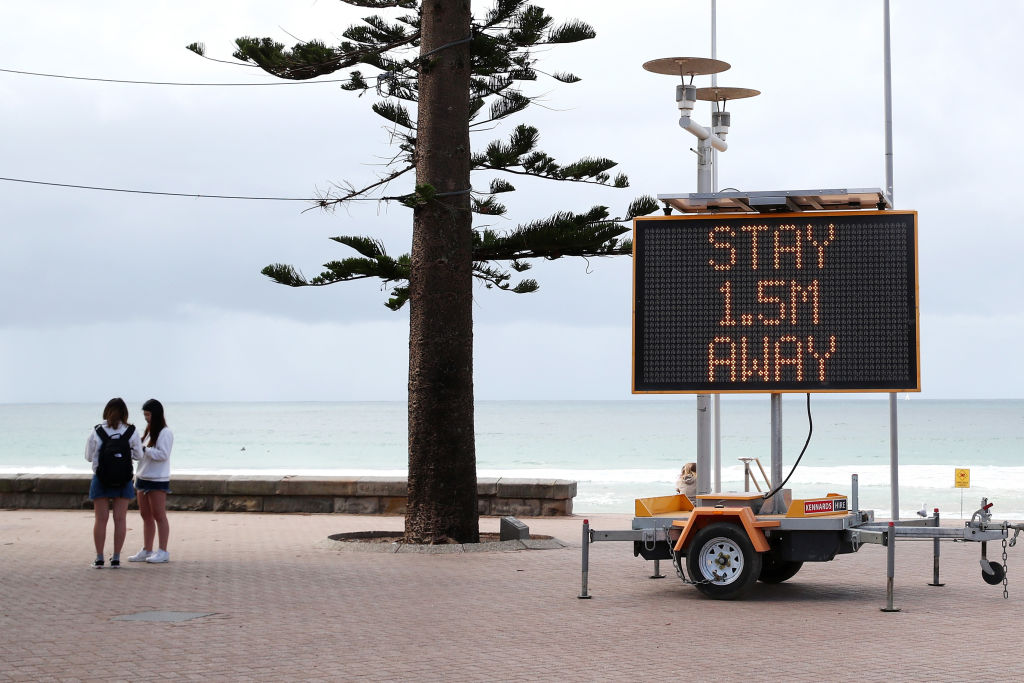 Print This Post
Print This Post- The Strategist - https://www.aspistrategist.org.au -
Covid-19 has dealt Australia danger—and opportunity
Posted By Jack Norton on May 18, 2020 @ 14:30

Article printed from The Strategist: https://www.aspistrategist.org.au
URL to article: https://www.aspistrategist.org.au/covid-19-has-dealt-australia-danger-and-opportunity/
[1] for years: https://www.cnbc.com/2020/05/14/coronavirus-who-warns-it-could-take-up-to-5-years-to-control-pandemic.html
[2] globalisation: https://www.economist.com/leaders/2020/05/14/has-covid-19-killed-globalisation
[3] engineered: https://www.abc.net.au/news/2020-05-01/scott-morrison-donald-trump-coronavirus-wuhan-lab-claim/12207322
[4] weak: https://www.aspistrategist.org.au/lies-opportunity-and-the-coronavirus-beijing-engages-in-damage-control/
[5] South: https://www.reuters.com/article/us-china-security-malaysia/chinese-ship-leaves-malaysian-waters-after-month-long-south-china-sea-standoff-idUSKBN22R1SN
[6] East: https://thediplomat.com/2020/05/japan-protests-china-coast-guard-harassment-of-fishing-vessel-near-senkaku-islands/
[7] Djibouti: https://www.forbes.com/sites/hisutton/2020/05/10/satellite-images-show-chinese-navy-is-expanding-overseas-base/#3725192d6869
[8] attributed: https://www.theguardian.com/us-news/2020/apr/27/joe-biden-trump-coronavirus-politics-pandemic
[9] Global Times: https://www.globaltimes.cn/content/1188395.shtml
[10] consumer boycott: https://www.afr.com/politics/federal/china-consumer-backlash-looms-over-morrison-s-coronavirus-probe-20200423-p54mpl
[11] tariff: https://www.abc.net.au/news/2020-05-17/coronavirus-china-investigation-trade-barley-beef-covid-19/12256896
[12] opposition: https://www.afr.com/politics/federal/china-rejects-call-for-independent-scrutiny-of-virus-origins-20200420-p54lb6
[13] softened: https://www.smh.com.au/world/asia/china-open-to-probe-of-origins-of-new-coronavirus-ambassador-20200509-p54rcz.html
[14] refusal: https://news.sky.com/story/coronavirus-who-not-invited-to-join-chinas-covid-19-investigations-11981193
[15] demands: https://www.axios.com/beijing-demanded-praise-in-exchange-for-medical-supplies-16f5183e-589a-42e5-bc25-414eb13841b0.html
[16] propose: https://www.smh.com.au/politics/federal/australia-secures-european-support-for-the-independent-pandemic-probe-20200515-p54t9q.html
[17] signed up: https://www.abc.net.au/news/2020-05-18/government-vindicated-by-global-support-for-coronavirus-inquiry/12257688
[18] described as: https://www.theaustralian.com.au/nation/politics/coronavirus-economy-overrides-security-in-china-dealings-says-business-group-chief/news-story/b2dd5090ed476369f85928962d3da33d
[19] said yesterday: https://www.theaustralian.com.au/nation/trade-minister-simon-birmingham-hits-back-at-chinese-snub/news-story/c05ecd40518decdb16d8f651e55ba2be